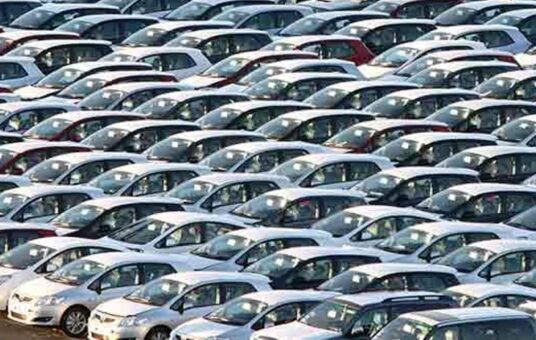ISLAMABAD: The government has approved changes to payment of duty and taxes system for clearance of used vehicles, which are allowed to import under three different schemes.
The Economic Coordination Committee (ECC) of the Cabinet on Wednesday on a proposal by the Commerce Division, took up the import of used vehicles under personal baggage, transfer of residence and gift schemes which require the payment of duties and taxes to be paid out of foreign exchange arranged by Pakistani nationals themselves or local recipients producing proof of conversion of foreign remittance to local currency, and allowed the importers to meet any shortfall in arrangement of required foreign remittance for payment of duties and taxes through local sources in case of a scenario where the Pak rupee depreciates or government increases the import duties and/or taxes after the receipt of remittance and before the filing of the good declaration, which results in shortfall of remitted amount vis-a-vis payable duties and taxes.
The ECC decision would help clear up a total of 1017 vehicles currently stuck at Karachi port because either no foreign remittance had been received or the remitted amount had been rendered insufficient due to depreciation of PKR before the filing or goods declaration or increase in the rate of duty in the Finance Act 2019.
On another proposal by the Commerce Division, the ECC accorded ex-post approval to an SRO issued by Commerce Division on August 21, 2019 for extending till August 31, 2019 the implementation of quality standards on the import of solar PV equipment into Pakistan under an SRO issued by the Commerce Division on May 28, 2019.
The Commerce Division had issued the SRO in late August following instructions from the Prime Minister to resolve the issue of several containers stuck up at ports due to lack of clarity amongst stakeholders, pre-shipment companies and border agencies regarding documents required for observance and implementation of the quality standards introduced on May 28, 2019 as per a decision of the federal cabinet.
